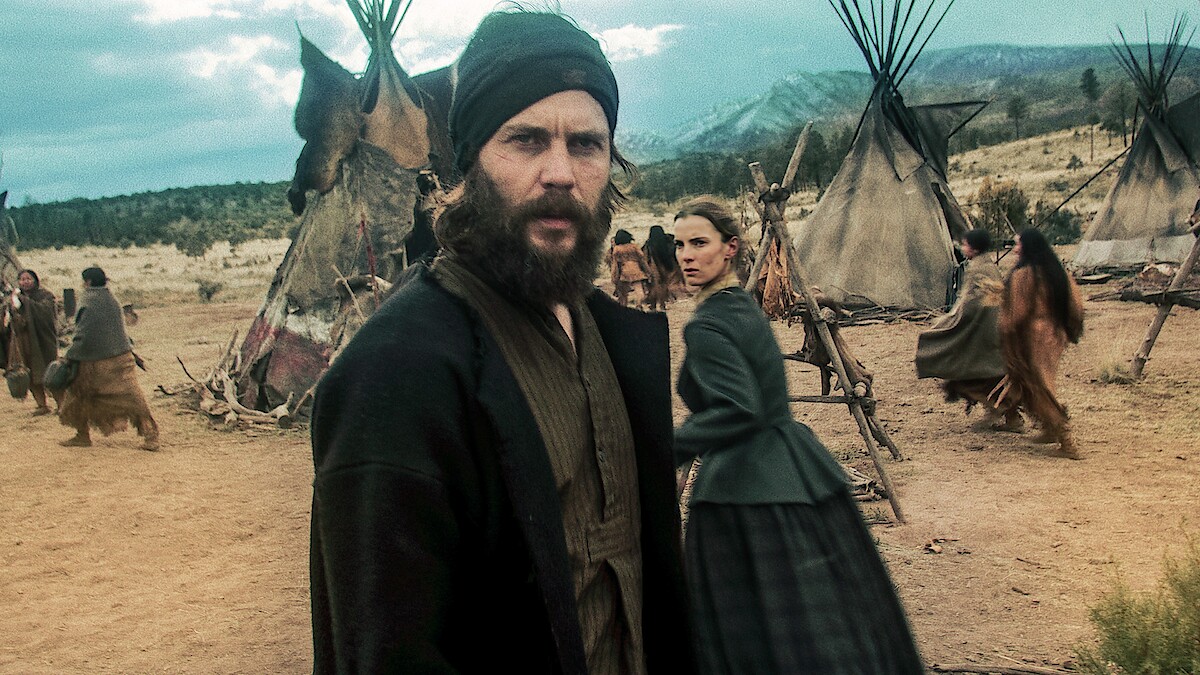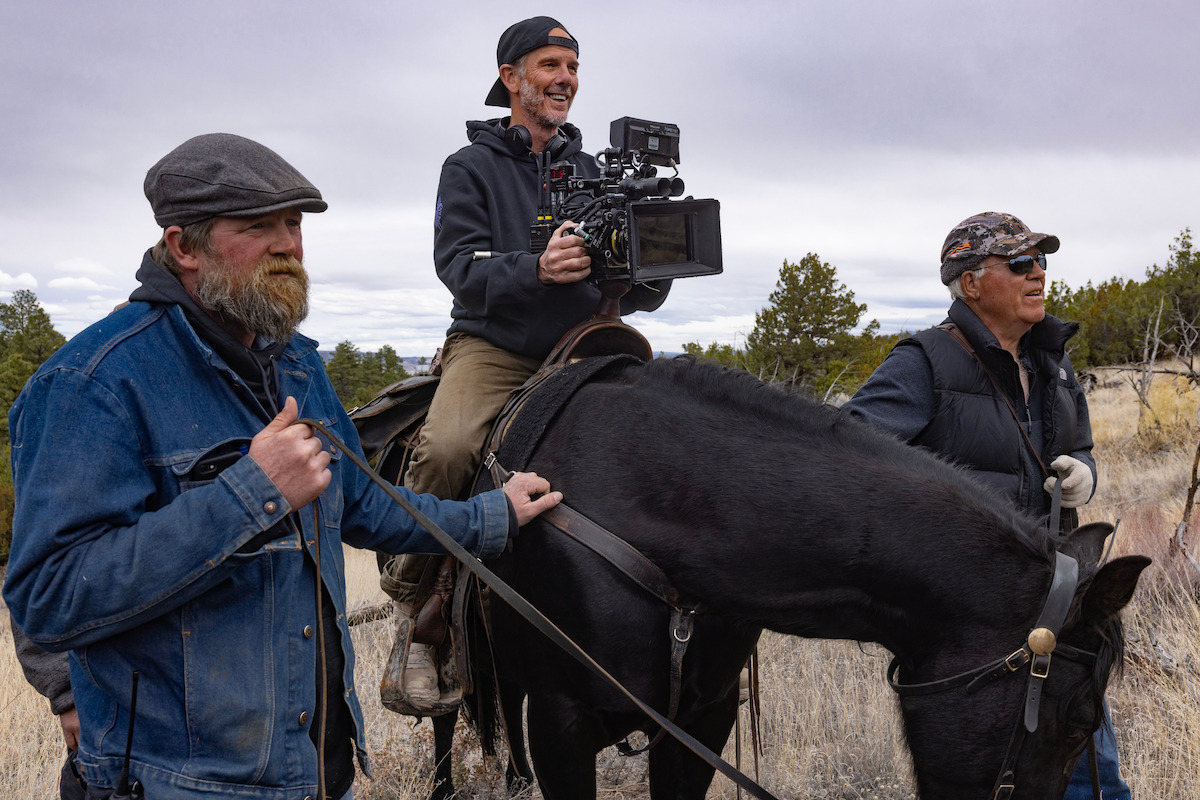Director Peter Berg’s new Netflix series, American Primeval, is an ambitious Western epic set in the 1850s Utah Territory, delving into the violent clashes between Mormons, immigrant settlers, indigenous tribes, and opportunists seeking profit.
The series is vast in scope and bold in ambition, yet its origins are surprisingly straightforward for Berg.
“The origin was me obsessing on Jeremiah Johnson and wanting to do something that required us to really go out into the elements,” Berg shared on IndieWire’s Filmmaker Toolkit podcast.
“I felt the calling for that kind of challenge.” Along with Sydney Pollack’s 1972 Western classic starring Robert Redford, Berg found inspiration in an unexpected place.
“I have a weird collection of knives and axes and all kinds of things that people give me. I had this big ice axe, and I just put the ice axe in [writer] Mark L. Smith’s lap, and I said, ‘Could you write this as a series?’”
- Mohammad Rasoulof Thinks the Oscar Campaign for ‘The Seed of the Sacred Fig’ Offers Hope to Those ‘Working Under Repressive Circumstances’
- Pamela Anderson Teases Upcoming Role in the ‘Naked Gun’ Reboot: ‘I’m Literally Running into Walls’
The resulting series combines the immersive location work of Pollack’s Jeremiah Johnson with the visceral intensity suggested by that ice axe’.
These elements converge in a striking sequence from the first episode: a brutal attack on a wagon train by Mormon settlers, based on the historical Mountain Meadows Massacre.
This set piece unfolds as a single, unbroken take, immersing viewers in the harrowing experience of a single mother and her young son.
The choreography of the scene is both intricate and unrelenting, merging elegance with raw brutality.
Though the sequence appears to be one continuous shot, Berg revealed it was actually composed of eight separate shots digitally stitched together—a process that was no less arduous.
“Once that idea was hatched, there are stunts, visual effects, camera operators, wranglers, and dozens of people that need to be involved to pull something like that off,” Berg explained.
To plan the scene, his team gathered in conference rooms, using figurines and horses to map out the action. They then traveled to the New Mexico location to rehearse and determine the best way to execute the sequence.
“It becomes an evolution further complicated by the fact that we wanted to shoot it at sundown,” Berg explained.
“So as the sun is setting, you know you have maybe a 50-minute window to shoot. We stitched together eight shots in that sequence, so we figure, all right, we’ll shoot two of those shots a day for three days.

And you’ve got to be very precise because you get there in the morning and rehearse all day and you’re waiting for that moment when the sun is right where you want it.
And then you have to execute it almost flawlessly — you might get two tries, or three if you’re really lucky.”
American Primeval
For Berg, the pressure of this precise approach was exhilarating, especially given how seamlessly his crew executed the plan. “It’s a kind of filmmaking that I like because everybody’s super amped up,” he noted.
“It’s almost like a live experience, and you know that if you mess it up, you’re going to have a problem because you’re going to have to come back another day, and there’s a lot of cost associated with that.”
Although Netflix initially doubted whether the sequence could be pulled off, they were ultimately pleased with the results. “They let us waste 90 percent of a day for 48 minutes worth of actual filmmaking,” Berg said.
Berg’s commitment to authenticity meant shooting for 137 days outdoors, with only three days spent in a studio—a setting the cast and crew found stifling after their time in the wild.
“We were so feral from having been out there,” Berg said, recalling the company’s reaction to the soundstage: “We don’t belong here. We’re not fancy enough.”
The production faced extreme weather conditions, from freezing cold to intense heat, with high winds necessitating a fire department on standby at all times.
Despite these challenges, Berg embraced the rugged nature of the shoot. “It was hearty filmmaking, and I loved it,” he said, noting that the cast and crew’s experiences influenced the show’s tone.
“The stakes are pretty high, like life or death, so I wanted a certain level of physical and emotional discomfort for the actors. There was not a lot of luxury, and I think that helped us create a kind of beautifully unpleasant tone.”
While American Primeval explores the darker aspects of human nature and societal conflict, Berg maintains a sense of optimism about America and its potential.
“I do believe that man is a violent animal and it’s very hard to divorce our willingness to engage in acts of violence from our humanity,” he reflected.
“It’s just part of who we are. We’ve also made peace. We’ve also survived. We didn’t have social media and the ability to amplify conflicts in the way we do now, but I don’t think it’s anything new.
And that does give me comfort because, yes, we are violent, but we’re also capable of love and empathy and compassion. At the end of the day, we are as interested in making peace as we are making war.”
